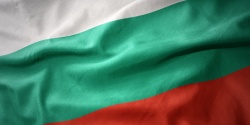Published: 27.08.2021

• Two Bulgarian women have filed a complaint to the European Court of Human Rights against their own country, whose authorities refused to register their ‘marriage’ concluded in the United Kingdom.
• The decision was upheld by the courts in Bulgaria, including the Supreme Administrative Court, which indicated that only a union between a man and a woman can be considered a marriage.
• The Ordo Iuris Institute submitted an amicus curiae brief in this case to the Court.
• The lawyers stressed that EU Member States do not have to recognise the so-called ‘same-sex marriages’ concluded abroad. This is also confirmed by court rulings from various countries.
Following the Supreme Administrative Court’s ruling, Darina Kollova and Lillia Babulkova appealed to the ECtHR. The women used legal assistance from Deystva (Действие), a Bulgarian LGBT organisation. They alleged that Bulgaria violated their right to respect for their family life and the right to non-discrimination.
The Ordo Iuris Institute applied to the Chairman of the IV Section of the ECtHR with a request for permission to join the proceedings as an amicus curiae. After obtaining the permit, the Institute sent an amicus curiae brief to the Strasbourg Court, in which it argued that Member States do not have to recognise so-called same-sex marriages concluded by their citizens abroad. The Institute’s brief presents, for example, rulings of Polish, Italian and Bulgarian courts which refused to recognise foreign homosexual ‘marriages’, citing the protection of public morality, public order or the definition of marriage in force in national law. In its jurisprudence to date, the Court itself has recognised the authority of independent national courts, only exceptionally allowing the established line of jurisprudence in a given country to be challenged. In the case of the recognition of same-sex unions, there is no reason for such intervention.
‘In accordance with the case-law of the ECtHR, states have a so-called margin of freedom in areas of social life that are morally controversial, and the issue of same-sex relationships is certainly one of these. Unfortunately, in practice, the Court is gradually retreating from this position, as evidenced by the 2015, 2017 and 2021 judgements that ordered Italy and Russia to institutionalise same-sex relationships. Nevertheless, we are intervening in more cases of this type reaching the ECtHR, with whose help LGBT activists are trying to force a change in the definition of marriage and family in their countries, even against the views of the majority of their compatriots. This is the case in Bulgaria, where over 70% of the population opposes the introduction of so-called gay marriages. In our opinions sent to Strasbourg, we try to convince the Court that states should not be forced to establish or recognise legal institutions which raise moral objections of the majority of society’, said Karolina Pawłowska from the International Law Centre of the Ordo Iuris Institute.

09.05.2025
• Representatives of the Ordo Iuris Institute will participate in the Pan-African Conference on Family Values, which will begin on May 12 in Nairobi, the capital of Kenya. Ordo Iuris is a partner of the event.

07.05.2025
• The European Court of Human Rights has upheld a complaint by a same-sex couple whose Polish registry office refused to register a marriage contracted in the United Kingdom. This is the fourth judgment in which the ECHR indicates that Poland has an obligation to ensure that same-sex couples can formalize their cohabitation.

17.04.2025
• The Ordo Iuris Institute has prepared an opinion for the UN as part of a thematic report on surrogacy and its impact on the rights of women and children.

03.04.2025
• The Advocate General of the Court of Justice of the European Union (CJEU) has issued an opinion in a case involving a same-sex couple’s demand for their German marriage to be recognized as a marriage in Poland.